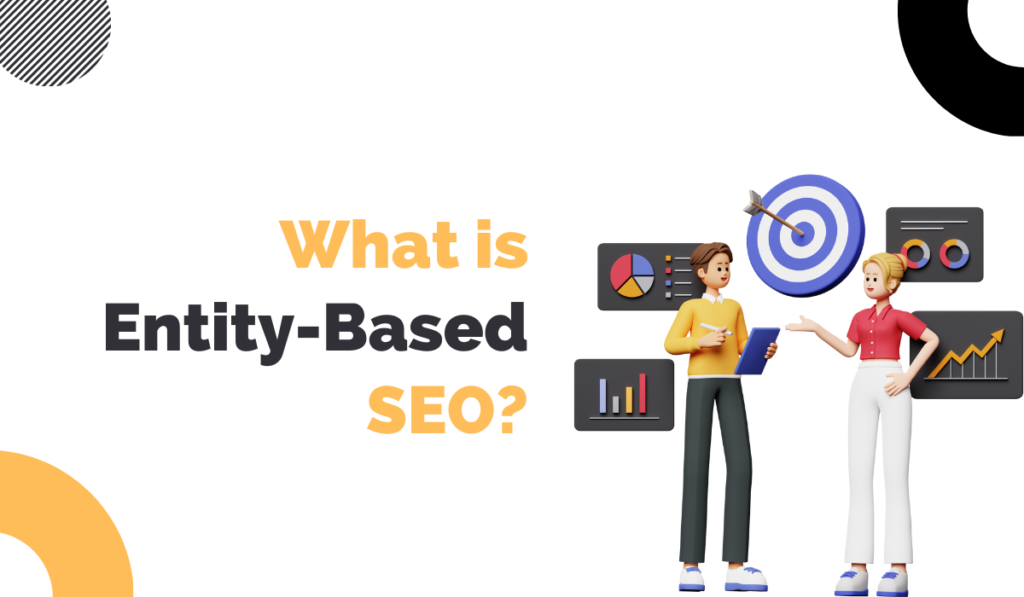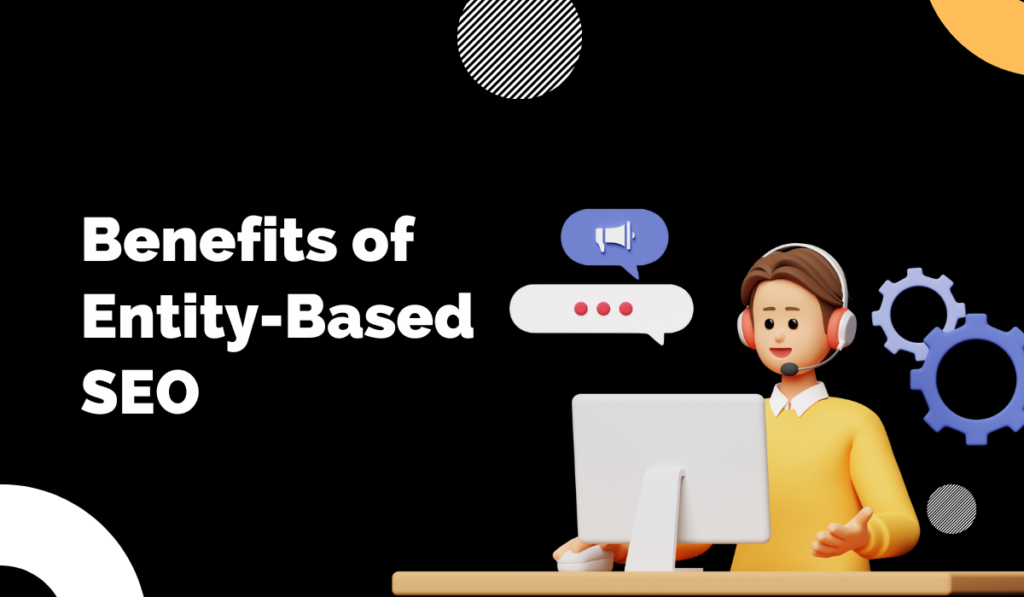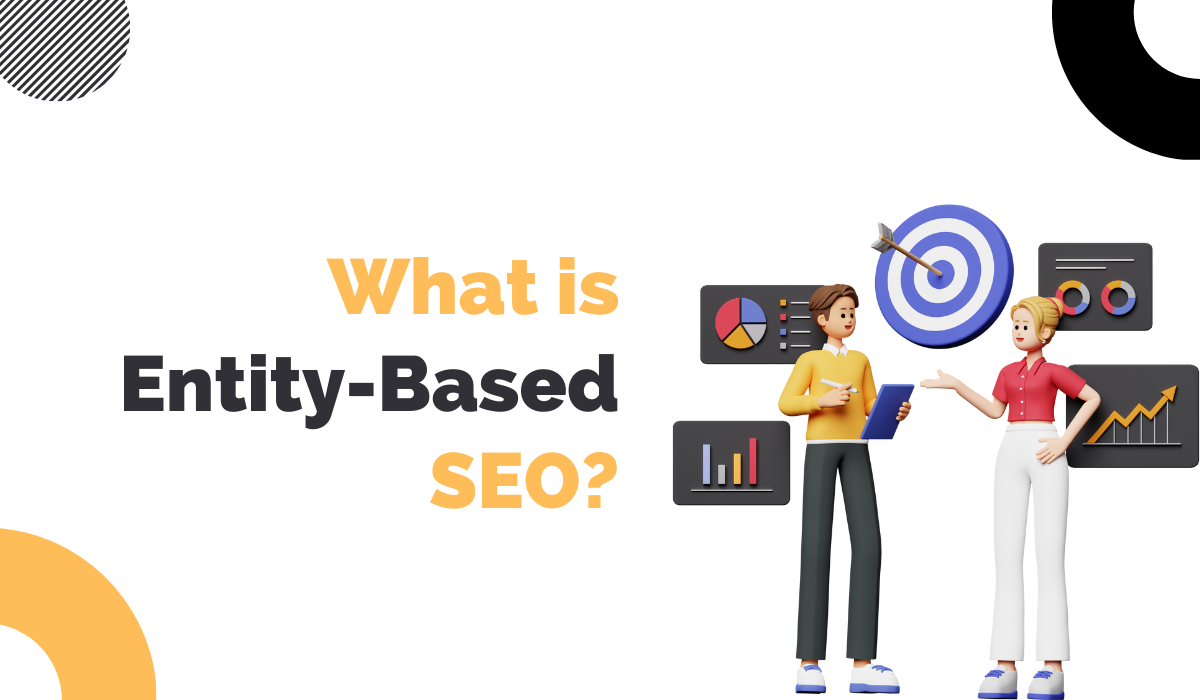
Search Engine Optimization (SEO) is a dynamic field that continually evolves to meet the demands of search engines and users alike. One of the newer trends in SEO is Entity-Based SEO, a concept that emphasizes understanding and optimizing for entities rather than just keywords. This approach aligns with the advancements in search engine algorithms, particularly those of Google, which increasingly prioritize content’s contextual relevance and semantic understanding. Let’s dive deeper into Entity-Based SEO, how it works, and why it matters.
What is Entity-Based SEO?
Entity-based SEO is a strategy focused on optimizing for entities—specific things, people, places, concepts, or ideas that are uniquely identifiable and have a distinct meaning in a particular context. Unlike traditional keyword-based SEO, which centers on optimizing for individual words or phrases, Entity-Based SEO aims to optimize content around these entities to align with how search engines understand and categorize information.
Entities Defined
In the context of SEO, an entity can be anything that can be distinctly identified and referenced. This includes:
- People: Individuals like celebrities or historical figures.
- Places: Locations such as cities, countries, or landmarks.
- Things: Physical objects like gadgets or books.
- Concepts: Abstract ideas like “sustainability” or “innovation.”
Search engines, notably Google, use knowledge graphs to understand and organize these entities. The knowledge graph is a vast database that stores information about entities and the relationships between them. SEO strategies can leverage this structured data to enhance visibility and relevance in search results by focusing on entities.
The Shift from Keywords to Entities
Why Keywords Alone Are Not Enough
Traditional SEO heavily relies on keyword optimization. Marketers would target specific keywords and phrases, optimizing content to rank higher for those terms. However, this approach has limitations:
- Contextual Understanding: Keywords alone do not capture the full context of the content. For example, “apple” can refer to the fruit or the technology company. Keywords don’t convey this nuance.
- Semantic Relevance: Focusing solely on keywords can lead to overly optimized content and less relevant to user intent.
The Emergence of Entity-Based SEO
Entity-based SEO addresses these limitations by focusing on the entities within the content. By optimizing for entities, you can:
- Enhance Context: Search engines understand the context better by recognizing the entities mentioned and their relationships.
- Improve Relevance: Content optimized for entities will likely meet user intent and provide relevant information.
For example, if you’re writing about “Steve Jobs,” optimizing for the entity “Steve Jobs” rather than just the keyword “Steve Jobs” can help search engines understand that your content is about the co-founder of Apple Inc. rather than someone else with the same name.
How to Implement Entity-Based SEO
Identify Relevant Entities
The first step in Entity-Based SEO is identifying the entities relevant to your content. This involves:
- Research: Use tools like Google’s Knowledge Graph, Schema.org, and other resources to identify entities related to your topic.
- Competitor Analysis: Analyze how competitors use entities in their content and structure.
Optimize Content Around Entities
Once you’ve identified the relevant entities, you should:
- Use Structured Data: Implement Schema markup to help search engines understand and categorize your entities. Structured data helps in enhancing rich snippets and knowledge panels.
- Contextual Relevance: Ensure that the entities are mentioned in a meaningful context. Provide detailed and accurate information about each entity.
- Internal Linking: Use internal links to connect related entities within your content. This helps search engines understand the relationships between different entities.
Leverage Knowledge Graphs
Search engines use knowledge graphs to organize information about entities. To align with this, you should:
- Provide Detailed Information: Include comprehensive information about the entities, including related facts, historical data, and relevant links.
- Update Regularly: Keep your content up-to-date to ensure that the information about the entities remains accurate and relevant.
Monitor and Adjust
Entity-based SEO is not a one-time task but an ongoing process. Regularly monitor your performance using SEO tools and adjust your strategy as needed. Look for changes in search engine algorithms and user behavior to stay ahead.
Benefits of Entity-Based SEO

Enhanced Search Engine Understanding
By optimizing for entities, you help search engines better understand the context and relevance of your content. This can lead to improved rankings and visibility.
Improved User Experience
Entities provide a more structured and relevant experience for users. When content is optimized around entities, users are more likely to find the information they are looking for quickly and easily.
Better Alignment with Search Intent
Entity-based SEO helps align your content with user intent. By focusing on entities, you can address your audience’s specific needs and interests, leading to higher engagement and satisfaction.
Challenges and Considerations
Data Accuracy
Ensuring the accuracy of information about entities is crucial. Incorrect or outdated data can negatively impact your credibility and search engine rankings.
Competition
As Entity-Based SEO becomes more popular, competition for optimizing entities will increase. Staying ahead will require continuous research and adaptation.
Complexity
Optimizing for entities involves understanding how search engines interpret and categorize information. This can be complex and may require additional expertise and resources.
Conclusion
Entity-based SEO represents a significant shift in how we approach search engine optimization. By focusing on entities rather than just keywords, you can enhance your content’s contextual relevance and accuracy, improve user experience, and better align with search engine algorithms. As search engines continue to evolve, understanding and implementing Entity-Based SEO will be crucial for maintaining and improving your online presence. Embrace this approach to stay ahead in the ever-changing world of SEO.

